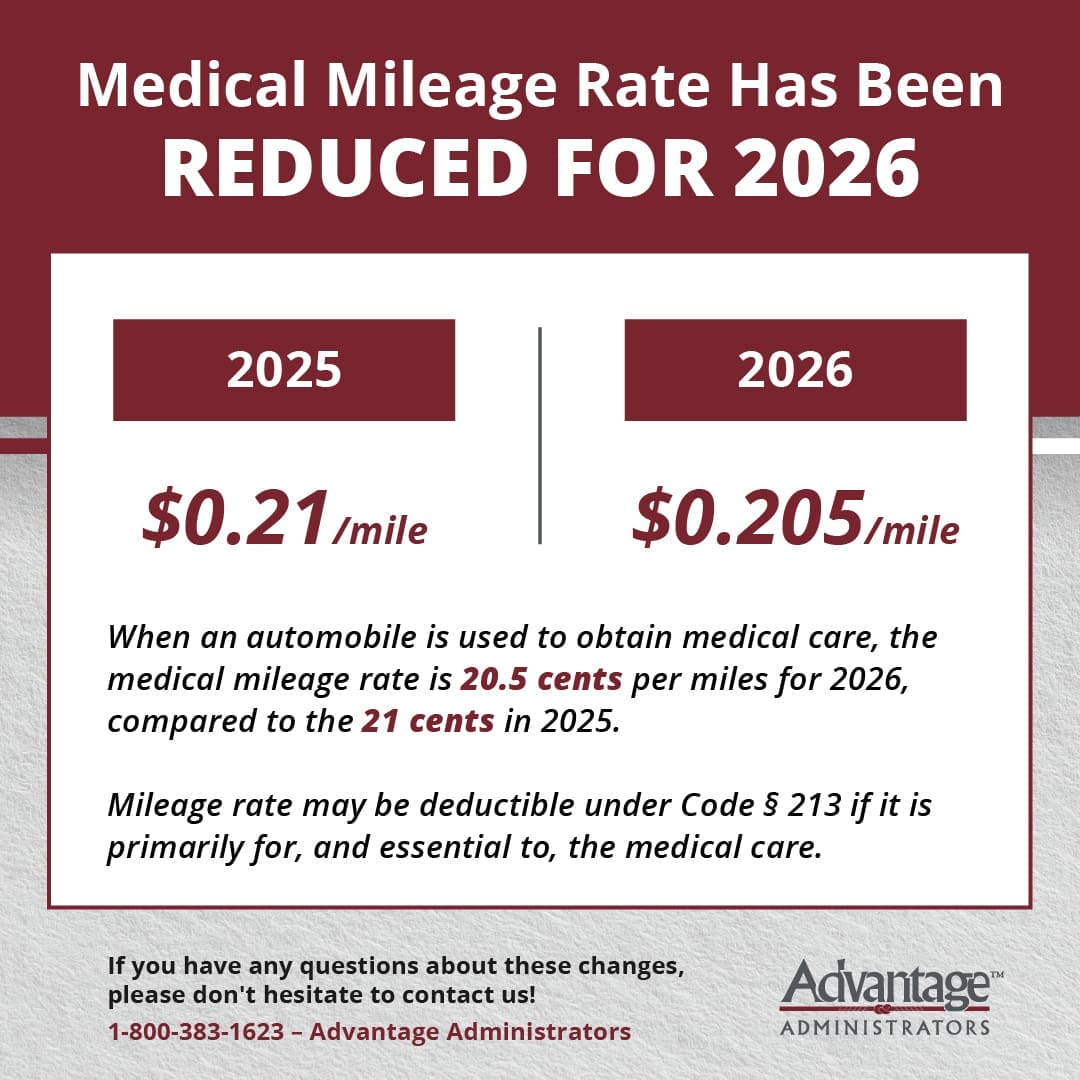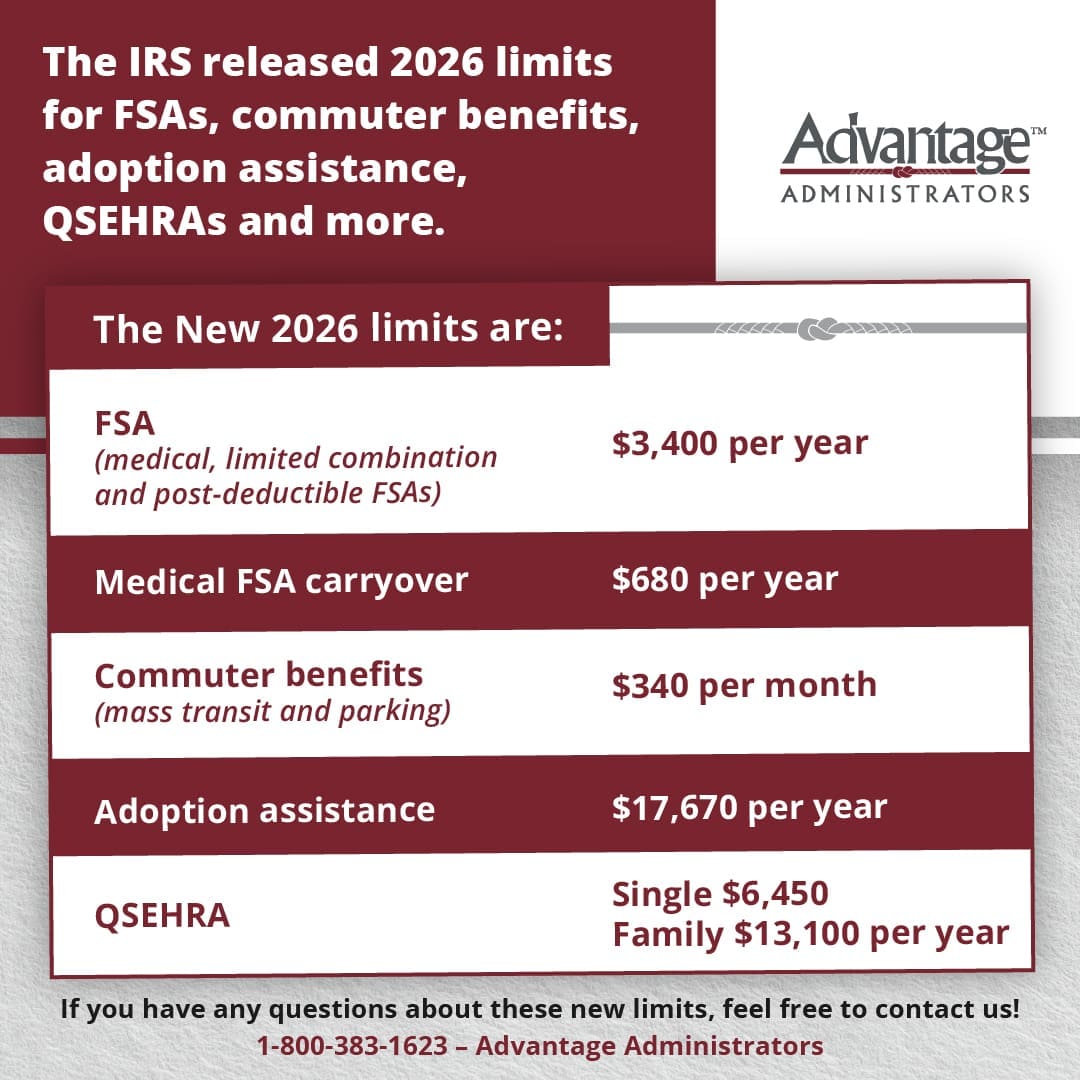Save Money on Eligible Expenses This Winter
For many people, winter and illness go hand in hand. But if you have a Health Savings Account (HSA) or a Flexible Spending Account (FSA) from Advantage Administrators, many of the common eligible expenses are covered. If you suffer from sinus problems, dry eyes, or other issues, keep reading to learn how your HSA or FSA can help you combat winter woes.
Sinus problems

Cold, dry air during the winter months can really do a number on your sinuses. If your nose gets too dry, your sinuses can get backed up, leading to problems like sinus infections and even ear infections. There are a number of products available to help you prevent dry nasal passages and sinus cavities that are covered by your HSA or FSA, including:
- Nasal sprays
- Neti pots
- Steam inhalers
Dry eyes
Your nasal passages and sinus cavities aren’t the only things that winter air can damage—your eyes are often affected as well. Everyone’s eyes get a little drier as they age, but low indoor humidity combined with dry heat from your furnace can aggravate dry eyes even more, leading to more headaches and less productivity during the work day.
Eye drops can provide your eyes with necessary moisture, but you’ll need a prescription in order for your HSA or FSA to cover them. Therapy eye masks can also help combat dry eyes, headaches, and sinus issues.
Skin issues
Your skin is also susceptible to winter dryness. Cold, dry air saps skin of the oil that usually traps moisture, which can lead to irritation, itchiness, and flare-ups of chronic skin conditions such as eczema or psoriasis. To help minimize dry skin issues, be sure to moisturize right after your daily shower to trap water in the upper layers of your skin. Using a humidifier in your bedroom may also help, and you may be able to use your HSA or FSA funds to pay for one. You’ll need your doctor to complete a Letter of Medical Necessity in order to do so; you can find one on our website.
Back pain
Fun activities abound during the winter months! From sledding to skiing to skating, opportunities for enjoying the outdoors in the winter are endless. Unfortunately, seasonal back pain may limit your ability to join in the fun.
But there’s no reason to let back pain stand in the way of your family snowball fight—you can use the pre-tax dollars in your HSA or FSA to save money on hot/cold packs and heating pads.
Asthma
More than 25 million Americans suffer from asthma, which causes swelling and narrowing of the airways. This can seriously impact some people’s ability to be physically active, and winter often makes things worse. Cold winter air can trigger asthma attacks outdoors, while mold, pet dander, and dust mites can trigger attacks indoors. Asthma-related products, including inhalers, nebulizers, and oxygen flow monitors are eligible expenses under HSAs and FSAs.
Winter survival kits
Traveling during the winter months can be dangerous if you’re unprepared. Before you hit the road, make sure you have a few essentials tucked away in your car in case you run into trouble. Items commonly included in winter survival kits may be eligible expenses as well, including:
- First aid kits
- Bandages
- Gauze
To see a list of common qualified and non-qualified health expenses, visit our website. Still have questions? Contact us today for more information!










 Flex Plans
Flex Plans Forms
Forms HSA
HSA HRA
HRA Retirement
Retirement Health Shopper
Health Shopper FSA Store
FSA Store

